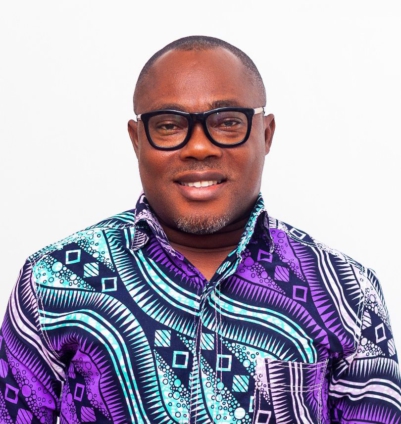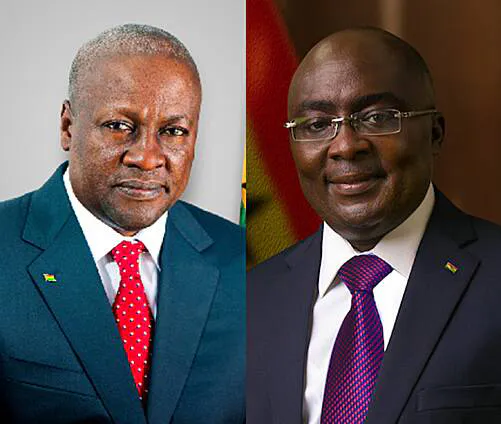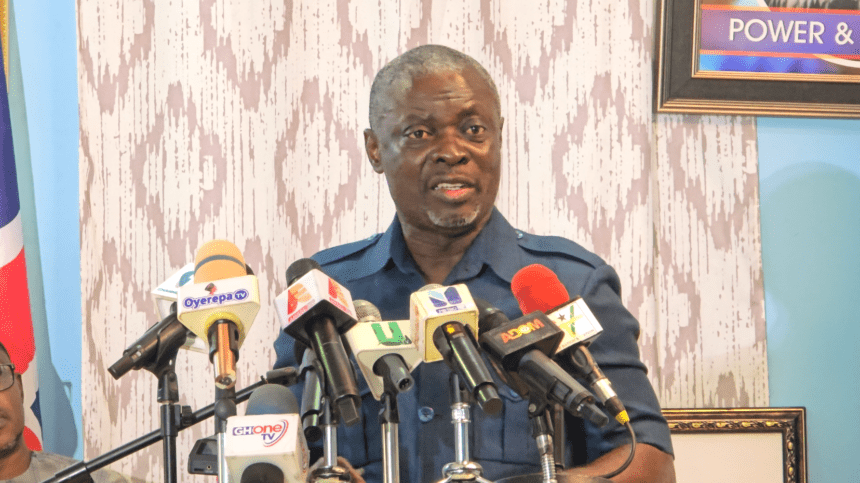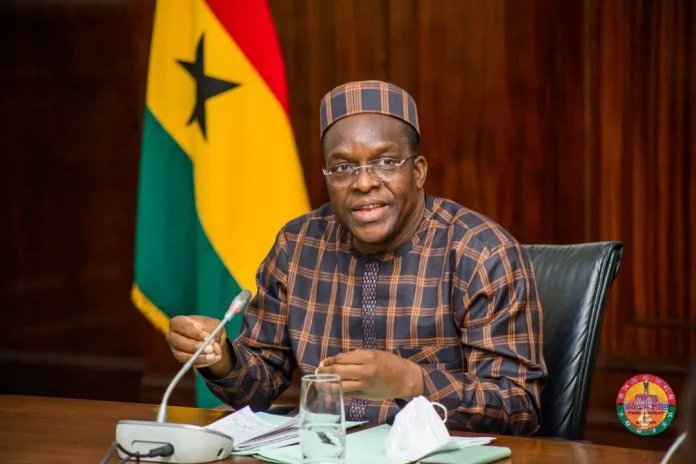Politics
Ransford Gyampo Flip Flops On Presidential Debate
Published
6 months agoon
By
Melody 911FM
A University of Ghana Political Science lecturer, Professor Ransford Yaw Gyampo, has been accused of playing double standards after expressing contrasting views on the relevance of presidential debates in Ghana’s electoral process.
In 2016, Professor Gyampo strongly advocated for a public debate between presidential aspirants, arguing that it was crucial for promoting issues-based politics.
He emphasized the importance of a “healthy contest of ideas” and accountability in the electoral process.
He called for institutionalization of presidential debates in the Ghanaian electoral calendar, explaining that the institutionalization of presidential debates in the electoral calendar would make it mandatory for every presidential contestant including the sitting president to participate in the debate.
He believes institutionalizing debate would ensure that politicians are held accountable to the electorate.
He argued that the contest for the mandate of the people to govern them must be done in a healthy debate of ideas devoid of insults and personal attacks.
“Some Serious Accountability Mechanisms including the conduct of Presidential Debates, have somewhat already evolved and must be institutionalized. Winning elections must not be as a result of insults, mudslinging and vituperations. It must solely be as a result of a healthy contest of ideas in an institutionalized debating culture, in the lead up to elections,” he stated.
Justifying the need for it to be institutionalized, he recounted how former presidents of the country took part in previous presidential debates when they were not presidents but refused to participate in similar debates when they were elected as presidents.
The political science lecturer also questioned why politicians call for debate in opposition but oppose same when they are in government stating that it is imperative to ensure that presidential aspirants, whether in power or not, do not have a choice in participating in a presidential debate.
Prof. Gyampo’s opinion follows former president Mahama’s challenge to president Akufo-Addo for a debate between them on their governments’ achievements on infrastructural development.
Based on his calls for institutionalising the presidential debates, the NPP flagbearer and Vice President, Dr Mahamudu Bawumia has thrown the gauntlet to his main challenger, former President John Dramani Mahama calling for debate on how to manage the Ghanaian economy and other policy directions.
However, in a recent statement on the debate, Professor Gyampo who appears to be at the corner of Mr Mahama has ruled out debate among the presidential candidates, describing it as disingenuous.
In reversing his stance, he now argues that hosting presidential debates “won’t help” in distinguishing between candidates due to the “current peculiar political condition” of Ghana.
He claims that the public’s focus should be on revitalizing democratic governance rather than engaging in “political grandstanding.”
According to him, a presidential debate won’t be of any use due to the current political conditions in Ghana.
“| have organized Presidential Debates, Evening Encounters and Town Hall Meetings for many years when | worked at the Governance Unit of the Institute of Economic Affairs (IEA), from 2004-2018. As an academic, I have also researched the impact of these engagements on electoral fortunes.
In May 31, 2024 he turned around that given Ghana’s current political and economic circumstances, holding or participating in Presidential debates is not a viable or practical option at this time.
The Political Science lecturer revealed that, during his fourteen-year stint at the Institute of Economic Affairs’ (IEA) Governance Unit (2004-2018), he was instrumental in orchestrating several public forums, including Presidential Debates, Evening Encounters, and Town Hall Meetings.
Furthermore, he stated that as an academic, he has conducted extensive research on the effects of these public engagements on electoral outcomes, further solidifying his expertise in the field.
“But the current peculiar political condition of Ghana makes the call for debate disingenuous. If a comparison of yesterday and today cannot be done to inform rational choice, then presidential debates, I dare say, won’t help either, in distinguishing between a clear day and a dark night”.
This change in opinion has raised questions about Professor Gyampo’s consistency and his motives for opposing a presidential debate.
Critics have accused him of allowing his political affiliations to influence his academic views.
The revelation of Prof. Gyampo’s double standards comes amidst growing calls for a presidential debate between the flagbearer of the opposition National Democratic Congress (NDC), John Dramani Mahama, and the presidential candidate of the ruling New Patriotic Party (NPP), Dr Mahamudu Bawumia.
Mr Mahama in government and opposition had challenged Nana Akufo-Addo to a debate, but the NPP declined, stating that the move was just “propaganda.”
However, now that his request has been acceded to by Dr Bawumia, the NDC flagbearer is running away from the debate with Gyampo and co. acting as spokespersons.
The issue of political accountability has become a central theme in Ghana’s political discourse.
Many believe that a presidential debate would provide a transparent platform for candidates to articulate their policies, address national issues, and be held accountable for their actions.
Prof. Gyampo’s vacillating stance has sparked debates and raised concerns about the influence of political agendas on academic integrity.
The public has urged stakeholders to maintain a consistent and principled approach to electoral processes to ensure the credibility and integrity of the democratic system.
Gyampo Reaction To Blowing Hot And Cold
Folks,
I knew people would do propaganda and accuse me of being inconsistent because of my current view on the calls for Presidential Debates.
Ideally, I shouldn’t be responding but, I just stepped out for lunch and have some free time. A simple reading of my current view as shared on my Facebook would show how different it is from my previous one.
I like presidential debates and have researched about them.
BUT AT THIS PARTICULAR HISTORICAL EPOCH, it is not needed. This is my view and the reasoning for this current view is clear in my earlier post.
But even if I said debates must not be evaded in time past, can’t I change my mind? It is only a fool who doesn’t change his mind. That’s why I voted for Nana Akufo Addo in the last elections but I won’t vote for him again should he contest any elections again here in earth and in the hereafter.
Just as voting must not be on autopilot, human reasoning must even be more sophisticated and should never be on autopilot.
This is my CURRENT VIEW again:
I have organized Presidential Debates, Evening Encounters and Town Hall Meetings for many years when I worked at the Governance Unit of the Institute of Economic Affairs (IEA), from 2004-2018. As an academic, I have also researched the impact of these engagements on electoral fortunes.
But the current peculiar political condition of Ghana makes the call for debate disingenuous. If a comparison of yesterday and today cannot be done to inform rational choice, then presidential debates, I dare say, won’t help either, in distinguishing between a clear day and a dark night.
The conduct of Presidential Debates have a role to play in our drive towards democratic maturity. But at this particular epoch in our political and governance experience, we must preoccupy ourselves with how to restore the Fourth Republic to its original settings for its sustenance, rather than craving to create a platform for potential political demagoguery that insults the human intelligence of the politically un-inquiring mind.
You may like
Politics
Bawumia- “Mahama’s Economic Record Bad”
Published
2 weeks agoon
November 11, 2024By
Melody 911FM
The presidential candidate of the New Patriotic Party (NPP), Vice President Dr. Mahamudu Bawumia, has openly criticised former President John Dramani Mahama’s economic management, describing it as the worst among Ghana’s Fourth Republic leaders.
According to him, during Mr. Mahama’s tenure, the economy experienced substantial setbacks across multiple sectors, marked by soaring inflation, sluggish growth, and increasing unemployment.
Speaking at the Ghana CEO Presidential Gala in Accra last Thursday, Dr. Bawumia asserted that his criticism was based on hard economic data rather than partisan views.
He contrasted this with what he described as Ghana’s improved economic trajectory under NPP leadership, asserting that Mr. Mahama’s tenure represented a “decisive failure in economic stewardship.”
Dr. Bawumia stressed that his analysis was intended to highlight the need for sound economic management and that his remarks were meant to shed light on measurable outcomes of Mr. Mahama’s policies, which he said weakened the country’s economic resilience.
The NPP presidential candidate expressed his commitment to building on the progress achieved under the Akufo-Addo administration.
He underscored the importance of data-driven policies and positioned himself as the candidate most capable of navigating Ghana through future economic challenges.
“Despite the impact of global economic challenges, it might surprise some, including the former president himself, that his administration ranks the lowest in economic performance among all Fourth Republic leaders,” Dr. Bawumia reiterated.
He continued, “Yet, he speaks about our economic performance as though his was superior.”
Business Development
Dr. Bawumia also used the opportunity to reaffirm his commitment to strengthening business development in the country, stressing that resilient businesses are foundational to a thriving economy.
He praised the role of the private sector in creating jobs, driving innovation, and fostering sustainable growth.
The NPP flagbearer detailed policies introduced by the current administration to support Ghanaian businesses, including initiatives aimed at enhancing entrepreneurship, expanding access to credit, and advancing digitalisation.
According to Dr. Bawumia, these steps are critical to building a competitive, innovative, and resilient business sector.
He promised that, if elected, he would continue to prioritise business growth in order to ensure the Ghanaian economy remains vibrant and competitive on a global scale.
“Ladies and gentlemen, as you may know, Bawumia means business! From banking to vice presidency, my commitment to business development has been unwavering.
“Strong businesses lead to a strong economy—show me a prosperous nation, and I’ll show you resilient businesses behind it,” he concluded.
Politics
NPP, NDC have mismanaged Ghana – GUM
Published
2 weeks agoon
November 11, 2024By
Melody 911FM
The Ghana Union Movement (GUM) has criticised the New Patriotic Party (NPP), and the National Democratic Congress (NDC) for “mismanaging the country” and supervising the sale of state-owned businesses bequeathed by previous governments.
The Party said the sale of state-owned factories to private individuals and failure to revive defunct state enterprises largely accounted for the growing youth employment situation that had bedeviled the country.
These were contained in a news release issued by the Party’s founder and leader, Reverend Christian Kwabena Andrews, and shared with the Ghana News Agency.
The GUM urged the youth to “be concerned about their future” and vote to break the duopoly enjoyed by the NPP and NDC for decades.
“Embracing both NDC and NPP as a party is just endorsement of the continuity of the Ghanaian predicament. Ghanaian youth must rise to vote massively against these parties, because they were the source of our problems today,” it said.
The GUM said the slow pace of development since the commencement of the Fourth Republic in 1992 justified the call for the “total overhaul” of the 1992 Constitution “considering the mess caused by both NDC and NPP government respectively.”
The Party proposed the adoption of what it termed as “Hybrid African Democracy” which it said was suitable governance model for the country.
“The current model was copied line, hook, and sinker from the West, where they have established and structured institutions to make their democracy work,” it said.
The GUM also called for downsizing of Parliament to reduce the cost of running the business of the House.
The Party said that salaries and benefits awarded to 275 Members of Parliament as well as Article 75 Office Holders “drain the national purse than building it.”
“We urge the public to vote for the Ghana Union Movement for a reliable, better Ghana with the Ghanaian youth as its core,” the Party said.
The GUM caused a stir when it placed third in the 2020 presidential election, beating the traditional Convention People’s Party, People’s National Convention, and the Progressive People’s Party.
The party garnered 105,548 votes, representing 0.805 per cent of the total ballots cast.
Rev. Andrews has indicated that the Party would build on its achievements in 2020 and affect the 2024 presidential and parliamentary elections.
The GUM has promised to establish factories in every region and operate a free port to boost economic activities and improve the living conditions of the people.

In a significant development, Ghana’s Parliament Speaker, Alban Sumana Kingsford Bagbin is set to address the media on Wednesday, November 6, 2024.
The press conference, scheduled for 2:00 pm at the Justice D.F. Annan Auditorium, Job 600, Parliament House, aims to tackle critical issues affecting Ghana’s parliamentary democracy.
Recent Developments
Alban Bagbin’s address comes amidst significant political developments in Ghana.
As Speaker, he has played a pivotal role in shaping the country’s legislative agenda.
His leadership has been marked by efforts to strengthen parliamentary oversight and promote transparency.
The engagement seeks to provide a platform for the media to discuss pressing concerns impacting Ghana’s democratic growth.
The Speaker, Alban Bagbin, is expected to shed light on recent events that have shaped the country’s political landscape.

Bawumia- “Mahama’s Economic Record Bad”

Peter Okoye reacts to alleged song ownership by twin brother
















